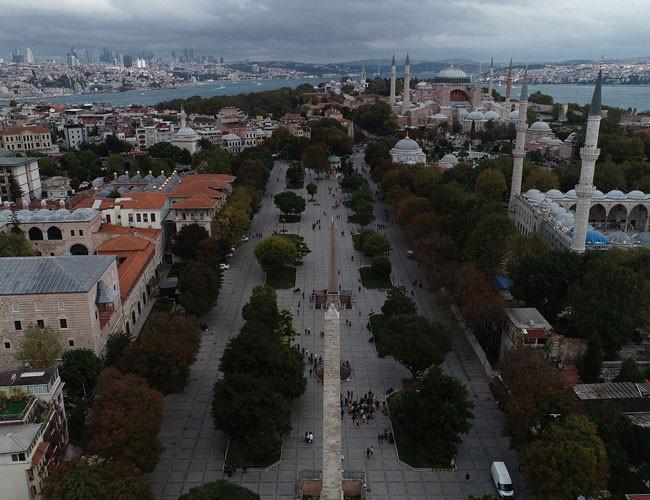
A government regulation widely known as the “property reconciliation” is threatening the fabric of Istanbul’s historical peninsula which is home to a host of ancient structures, including ones on UNESCO’s watch list, such as the Molla Zeyrek Mosque, the Yedikule Walls and Dungeons, and cisterns.
The owners of illegal constructions near those historical sites, including those in the Sultanahmet district, have applied to authorities to benefit from the property reconciliation.
But UNESCO has warned Turkey regarding the consequences of granting amnesty to those constructions that damage the historical structure and change the skyline in the historic peninsula.
Halil Onur, the president of the Istanbul Historical Sites, says not only the historical peninsula but also all other sites on UNESCO’s list should be excluded from the scope of the “property reconciliation.”
Officials from the Environment and Urbanization Ministry told daily Hürriyet that registered buildings in Istanbul are covered by the reconciliation while unregistered constructions are not.
They noted that the owners of the Celal Ağa Mansion that was built on the Acemoğlu Bath have applied to benefit from the reconciliation scheme while the Little Hagia Sofia and its vicinity are covered by the reconciliation.
“The constructions which do not fall into the scope of the law on protection of cultural and natural properties and that do not spoil the skyline should benefit from the reconciliation,” the officials argued.
According to experts, a number of historical buildings and sites, such as the Gazi Ahmet Paşa Mosque built by Sinan the Architect, the Tekfur Palace, the 1,600-year-old Palace of Bucoleon, and the Fatih Mosque, are covered by the reconciliation.
“With the reconciliation scheme, the illegal structures developed on archeological sites across Turkey, including Bergama and Ephesus, will gain legal status,” said Tayfun Kahraman, the head of Istanbul Chamber of City Planners.
The hoteliers in the historical peninsula, meanwhile, complain about discrimination.
“Some 1,000 hotels that host 150,000 tourists each day and generate $15 million, are not entitled to the benefit from the reconciliation,” said Ali Ersoy, the owner of Mine Hotel.
“The hotels that are considered historic buildings can benefit from the scheme but others cannot. The state should sort out this problem,” he added.
Ahmet Yaşar, the chair of the Istanbul Hoteliers’ Association, said the business group has applied to the Presidency on behalf of some 1,000 hoteliers to raise their objection.